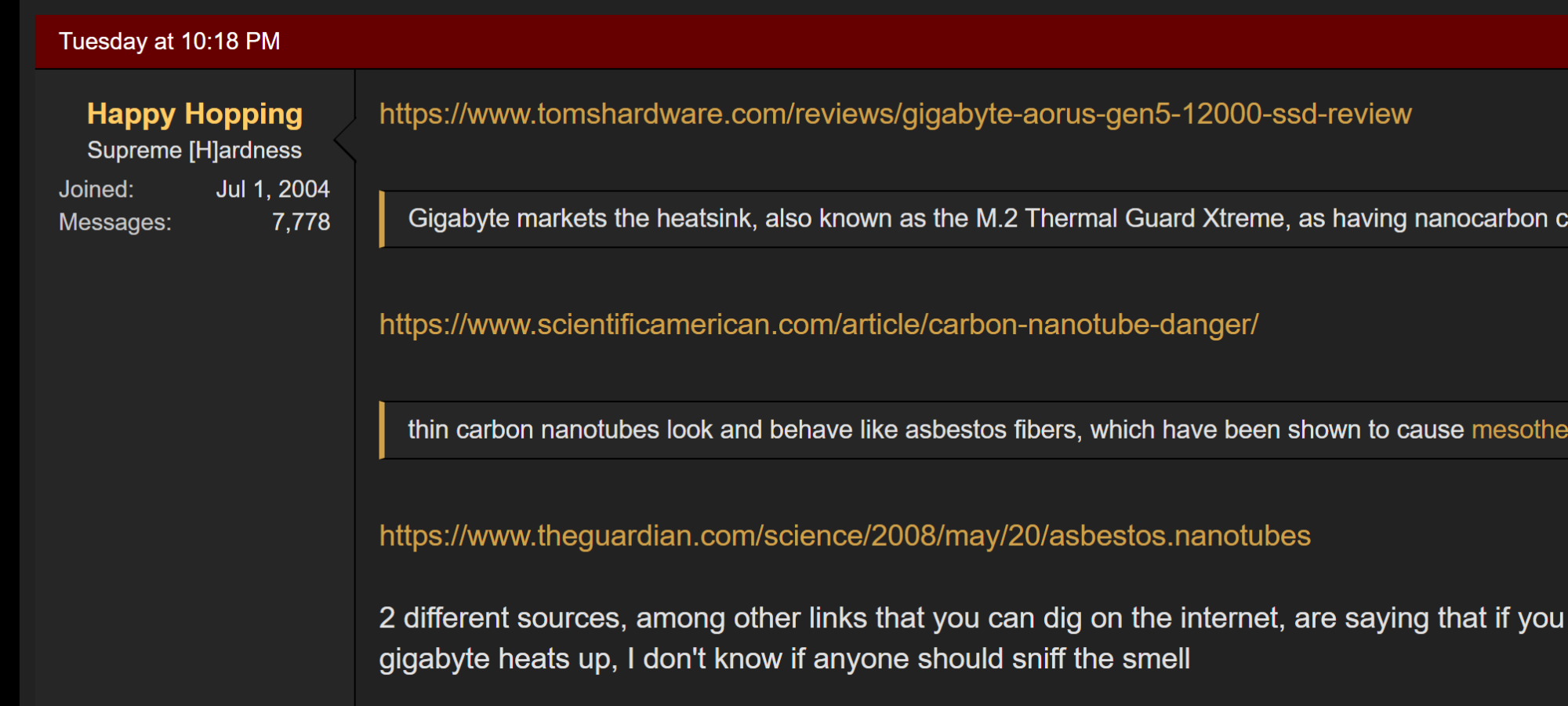Happy Hopping
Supreme [H]ardness
- Joined
- Jul 1, 2004
- Messages
- 7,837
https://www.tomshardware.com/reviews/gigabyte-aorus-gen5-12000-ssd-review
https://www.scientificamerican.com/article/carbon-nanotube-danger/
https://www.theguardian.com/science/2008/may/20/asbestos.nanotubes
2 different sources, among other links that you can dig on the internet, are saying that if you use nanocarbon, you can get lung cancer. So w/ that giant nanocarbon coated heatsink from gigabyte heats up, I don't know if anyone should sniff the smell
on other matter, all PCIe 5 SSD has to have that sandwich size heatsink? as I've seen some motherboard that the PCIe x16 video card slot is next to the m.2 spot on the motherboard, so the m.2 SSD heatsink is going to impact the video card then
Gigabyte markets the heatsink, also known as the M.2 Thermal Guard Xtreme, as having nanocarbon coating for improved performance for the dual-heatpipe,
https://www.scientificamerican.com/article/carbon-nanotube-danger/
thin carbon nanotubes look and behave like asbestos fibers, which have been shown to cause mesothelioma , a deadly cancer of the membrane lining the body's internal organs
https://www.theguardian.com/science/2008/may/20/asbestos.nanotubes
2 different sources, among other links that you can dig on the internet, are saying that if you use nanocarbon, you can get lung cancer. So w/ that giant nanocarbon coated heatsink from gigabyte heats up, I don't know if anyone should sniff the smell
PS5 and laptop users are also left out in the cold as PCIe 5.0 drives don’t work well with the console and need heatsinks for proper operation
on other matter, all PCIe 5 SSD has to have that sandwich size heatsink? as I've seen some motherboard that the PCIe x16 video card slot is next to the m.2 spot on the motherboard, so the m.2 SSD heatsink is going to impact the video card then
Last edited:
![[H]ard|Forum](/styles/hardforum/xenforo/logo_dark.png)
